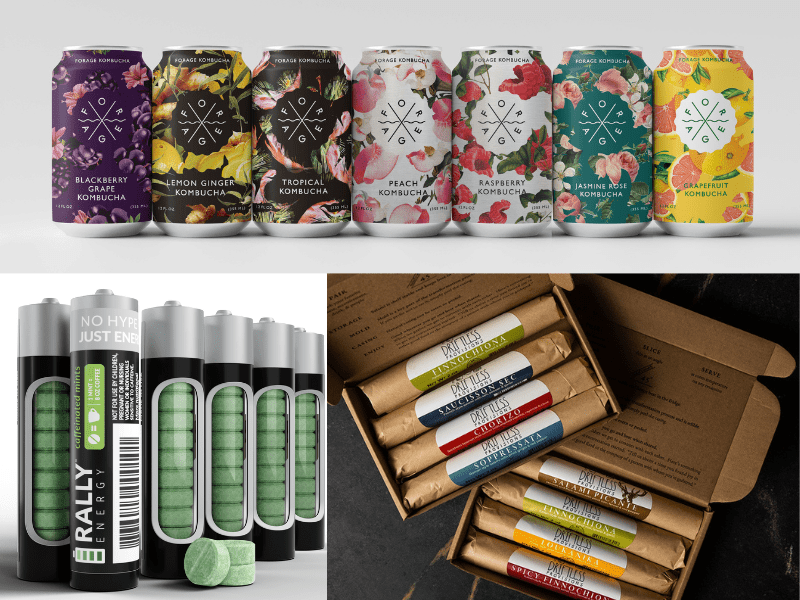In this crazy new world we’re living in, small businesses nationwide are torn on how to proceed, especially those suffering significant sales losses due to the COVID-19 crisis. As the pandemic rages on and the economic ramifications keep multiplying, the outlook for many food brands and farmers appears bleak. And with no idea of when normalcy will return—or what “normal” will even look like on the other side—it’s easy to feel frustrated, stuck and unsure what to do next.
But business owners can’t afford to be paralyzed by indecision. The time to assess the options and act is now. As we discussed in FFI’s virtual huddle this past Monday, all signs point to a significant and prolonged recession following the pandemic. Therefore, the longer food and farm businesses languish in uncertainty, the deeper the hole they risk digging, making it even harder to get back on their feet down the road.
So what should entrepreneurs do? We’ve been saying this over and over these past few weeks, but it can’t be stressed enough: Start by completing a 13-week rolling cash flow forecast. This is the best barometer of the overall health and survivability of a business in the current environment. FFI has a free template and on-demand online course demonstrating how to do a forecast, so please take advantage of these tools.
For some businesses, their cash flow situation will provide a clear answer: It’s probably best to either push the pause button for a while or pull the plug entirely. And in many cases, there is no benefit to waiting, especially if the company is unable to find alternate sales channels, predicts continued supply chain challenges or does not expect demand for their products to return to business-sustainable levels post-pandemic.
As consultant Bartlett Durand discussed in our most recent podcast, there’s no shame in small businesses declaring bankruptcy. It’s simply a legal tool to address debts, protect certain assets and avoid spiraling downward any further. Bartlett explained the importance of working with a bankruptcy attorney to help negotiate with lenders.
However, other businesses may do a 13-week rolling cashflow and realize they have a real shot at staying afloat, albeit by making a few changes. Here again, it’s time to make those changes. Nobody wants to lay off hardworking staff, but it may be necessary. Figure it out and have those tough conversations ASAP. Similarly, no business owner wants to be late on payments, but if delaying a check one month would provide cushion to keep going and generate more revenue, talk to landlords and lenders now.
Also look at government relief options immediately, including the Small Business Administration’s Disaster Loan Program, CARES Act protections and newly amended unemployment benefits, paid leave and Social Security tax requirements. Check into state and local government assistance as well.
Even when food and farm businesses don’t know what’s the next best move, they should not sit idle. It’s time to start figuring out the company’s future. As always, FFI is here to help, so please don’t hesitate to reach out.
And now, our roundup of the best food and beverage finance news, events and resources from around the web…
 Business Model Insights
Business Model Insights
- Emerging brands go direct-to-consumer as retailers pause demos, resets amid coronavirus (FoodNavigator-USA) “Still smarting from the sting of pivotal trade shows cancelling due to the coronavirus, many natural and better-for-you brands are pivoting to deliver their message of healthy eating straight to shoppers rather than relying on retailers to communicate their benefits to consumers.”
- Focus on what you can do: Expert guidance for brands’ COVID-19 struggles (New Hope Network)
- The Local Food Revolution Goes Online—for Now (Civil Eats)
 Raising Capital
Raising Capital
- Early stage CPG capital during the COVID-19 pandemic (New Hope Network) Consultant Michael Movitz assesses the pandemic’s implications on capital accessibility and financial management for CPG, especially for emerging brands.
- How to Obtain the Right Business Loan: Tips for Keeping More Cash in Your Company (Investors Community Bank)
- Should you hold off on your funding round right now? (New Hope Network)
 CPG/National Brands
CPG/National Brands
- CPG sales could rise as much as 30% from March to May, report finds (Food Dive) Throughout March, Nielsen noted monster sales growth in pantry staples and other foods, while big CPG brands increased production by up to 40% to meet demand. Analysts predict these changes will pay off.
- How to get your products on Amazon Prime (New Hope Network)
- Food firms source domestically as coronavirus creates supply chain concerns (Food Dive)
 Market Trends
Market Trends
- Whaddaya Knead? Yeast and Baking Powder Top America’s Shopping Lists (NPR) As Americans settle into staying at home, baking is becoming a common distraction, while panic buying of some products is slowing down. Yeast, baking powder and spiral hams were big sellers last week while shelf-stable foods, meats, produce and snacks keep flying off shelves at unprecedented rates.
- IRI and FMI: What can past crises teach us about grocery shopping behavior during the coronavirus pandemic? (FoodNavigator-USA)
- People Are Buying Astronomical Amounts of Eggs Right Now (Modern Farmer)
 Farming and AgTech
Farming and AgTech
- How the coronavirus pandemic is impacting farmers (New Hope Network) Farmers are feeling the effects—both positive and negative—of consumers’ shifting needs, wants and purchasing patterns around food. FFI Director Tera Johnson discusses how farmers are shifting gears and recouping income during the coronavirus chaos.
- COVID-19 has the US cheese and milk industries on the brink (Quartz)
- Pastured Meat Producers are Facing Catastrophic Losses. These Efforts Could Help Them Weather the Pandemic (Civil Eats)
 Deals/M&A
Deals/M&A
- Court Approves Sale of Dean Foods Assets, Including $433M DFA Deal (BevNET) After Dairy Farmers of America was dropped as the stalking horse bidder for Dean last month, a U.S. bankruptcy court approved the cooperative’s acquisition of Dean assets.
- Houlihan Lokey’s food M&A veteran Shaun Browne on sectors to watch—and how COVID-19 is affecting deal-making (just-food)
- Grays Peak Capital acquires Nosh Foods rounding out its baby, toddler, and kids snacks portfolio (FoodNavigator-USA)
COVID-19-Related Resources for Food and Ag Businesses
- USDA: Get answers to commonly asked questions about how COVID-19 relates to food.
- Farmers.gov: USDA’s farmer-centric page offers info on the status of USDA Service Centers, options for farmers and ranchers nationwide and answers to frequently asked questions.
- Food Industry Association (known until recently as the Food Marketing Institute): FIA’s website has an entire page dedicated to the virus’s impact on the food industry, including a comprehensive guide “Coronavirus and Pandemic Preparedness for the Food Industry” available for free download.
- Institute for Food Safety at Cornell University: This info-packed webpage provides answers to common food-industry-related questions, a food facility strategy checklist, access to virtual office hours with food safety expects and much more.
- OSHA: The Occupational Safety and Health Administration offers guidelines for businesses operating during the pandemic to help prevent exposure and infection among employees.
- Department of Labor: The Department of Labor’s Coronavirus Resources portal outlines workplace preparation, employees’ rights, wages and leave, and how to respond if the virus enters the workplace.
- Environmental Protection Agency: EPA provides a list of disinfectants approved for use against the SARS strain that causes COVID-19.
- FDA: Get the latest updates on COVID-19 and info on delayed domestic facility inspections and foreign facility inspections.
- Small Business Administration: SBA is offering designated states and territories low-interest federal disaster loans for working capital to small businesses suffering substantial economic injury as a result of COVID-19. Contact your local SBDC center to help navigate disaster loans.
- American Farmland Trust: AFT’s Farmer Relief Fund will award cash grants of up to $1,000 to help farmers weather market disruptions caused by the coronavirus crisis.

